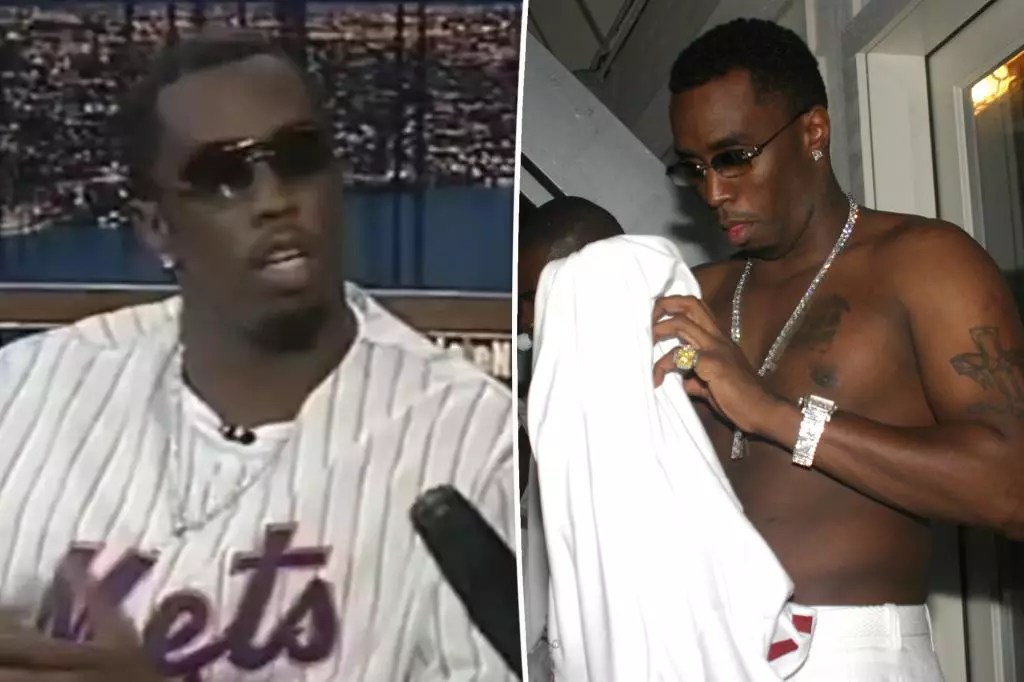In the glaring light of public scrutiny, Sean “Diddy” Combs is once again in the spotlight for the wrong reasons. A resurfaced interview from 2002, where Combs made offhand remarks about needing locks on doors to ensure women stay at parties, has gained notoriety amidst his current legal troubles. The comments made in a conversation with Conan O’Brien, which often flirted with questionable humor, have taken on a different, more sinister connotation following his recent arrest on serious charges, including racketeering and sex trafficking. It raises essential questions about how societal perceptions of humor intersect with serious behavioral patterns and the implications they carry in today’s context.
What’s particularly striking about Combs’ words in the interview is how they seem to reinforce harmful stereotypes about gender dynamics at social gatherings. His comments about providing “beautiful women” and the need for keeping them entertained with drinks present an unsettling image of women as objects rather than individuals with agency. The notion of needing to “take care” of women can easily dilute into a condescending viewpoint when one considers the underlying implications of ownership and control embedded within such statements. This kind of rhetoric has the potential to nurture a culture where coercion is normalized and where consent becomes an afterthought rather than a prerequisite.
The serious allegations Combs faces now—racketeering conspiracy, forcing individuals into prostitution, and exerting intimidation to maintain a criminal network—draw stark lines between past lighthearted banter and present gravity. The indictment alleges a pattern of abuse and manipulation spanning decades, painting a picture of a man who cultivated power through fear and control. Authorities claim that the charges against him are not mere individual acts but part of a larger criminal enterprise, which only serves to amplify the concern over the implications of unchecked influence.
As Combs prepares to fight these charges in court, the legal proceedings will not only affect him personally but will resonate throughout the music industry and beyond. The cultural ripple effect of such allegations could lead to a critical analysis of the rampant issues tied to power dynamics, exploitation, and the responsibility of public figures to uphold ethical standards. With his attorney asserting that Combs is eager to clear his name, the unfolding narrative will undoubtedly draw attention to the deeper issues of accountability in a celebrity-driven culture.
In the evolving landscape of societal expectations regarding consent and ethical behavior, the re-examination of historic jokes and casual references becomes paramount. Combs’ case serves as a reminder that past statements, especially those manifesting ill intentions, can shape the discourse around consent and power today. As the public discourse progresses, there lies an opportunity for education and growth in understanding the gravity of such societal issues. Ultimately, as the proceedings unfold, they will likely contribute to a larger conversation about the intersection of fame, accountability, and the pervasive responsibility of upholding personal integrity in both public and private spheres.


Leave a Reply